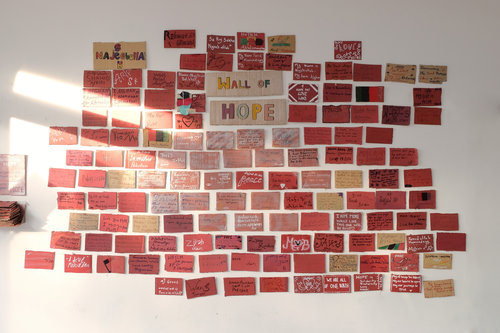- About
- Topics
- Picks
- Audio
- Story
- In-Depth
- Opinion
- News
- Donate
-
Signup for our newsletterOur Editors' Best Picks.Send
Read, Debate: Engage.
| October 15, 2019 | |
|---|---|
| topic: | Migration |
| tags: | #migrant, #human rights, #Bosnia and Herzegovina |
| located: | Bosnia and Herzegovina |
| by: | Katarina Panić |
“The site is like a magnet for migrants and they will gather there more and more in order to cross the border”, said Lars-Gunnar Wigemark, former Head of the EU Delegation to Bosnia and Herzegovina.
Nearly 36,000 migrants entered the country since last year. Some 7,400 are here so far. Following the significant increase of arrivals via new Balkan route, the International Organisation for Migration opened five camps financed by the EU and Council of Europe: Sedra and Borići for families and vulnerable migrants; Bira, Miral and Ušivak for single men primarily; accommodate some 4,100 people currently. Ušivak is near capital Sarajevo, the rest are in Una-Sana Canton, as well as Vučjak.
Unlike the others, Vučjak was opened by local authorities as a response to more and more frequent local residents’ protests in the Una-Sana Canton capital of Bihać demanding that migrants should no longer be allowed to reside in public spaces or abandoned buildings. However, local, cantonal, entity nor state-level authorities have capacities to deal with the migrant crisis. Moreover, all attempts to form a new state-level government after the October 2018 election failed.
In such circumstances, it would be logical to accept any kind of help in running camp Vučjak as the group of foreign volunteers, registered in Bihać’s Red Cross, have been providing medical help for its residents living in the grossly inadequate conditions. The hospital is ten kilometres away from the camp and people go there if more serious medical treatment is needed. One case of tuberculosis has recorded and ten percent of Vučjak’s residents have scabies.
“It is a thing that a journalist and a bunch of people from German and Austrian civil society have to take care of the medical care of these people because no one else does”, German reporter and humanitarian Dirk Planert wrote on his Facebook adding “the action in the sense of human rights has become criminal”.
Nevertheless, cantonal authorities have dissolved the camp's ambulance at the end of September, saying they’ve been informed the foreign helpers medical care was unprofessional and inappropriate.
“We clean wounds, measure fever, disinfect legs, listen to rattle lungs, inspect inflamed ears, put drainage, sew skin rags together and perform operations. We have experienced doctors on the team, untrained young people who provide first aid, refugees who help as interpreters and provide us with tea and food, photographers and the staff of the Bosnian Red Cross”, activist Joma Rameva wrote on her Facebook page.
“How dare they take us for fools with cheap accusations and fines while having tolerated us for the past three months? And that while knowing exactly what kind of work we were doing! More and more media outlets from various countries started reporting about the untenable situation in Vučjak, bringing to light this abhorrent example of inhumanity”, she added.
The human rights activists ask for solutions for the winter and the medical situation. Meanwhile, the Catalonian Government donated EUR 25,000 to Una-Sana Canton Government to help to establish an ambulance near Vučjak. As far as for the winter, no solution is foreseen.
On the other side, looking at Bihać for last two years, no local community in Bosnia and Herzegovina wants to offer the place to host the migrants. Furthermore, police are being deployed at bus and train stops taking care that no migrant leaves the bus or train in their places. If caught by the police, the migrants have been directed to camps. They don’t want to stay in Bosnia and Herzegovina anyway but try to reach Western Europe.
Croatia announced it had arrested and processed 11,813 people who had attempted illegal entry into its territory in the first eight months of the year. The migrants themselves called these attempts “The Game”. Last week another body was found. It was a migrant who drowned trying to reach the EU territory by swimming across the river Korana. Amnesty International, Border Violence Monitoring Network, as well as a number of non-governmental organisations, human rights groups, and media, have documented cases of police using disproportionate force.
As time goes by, anti-migrant sentiments grow, spreading by right-wing politicians, activists, and the media. The migrants are being labelled as criminals, thieves, rapists, terrorists and ISIL members. The buses and the trains with separated places for migrants irresistibly reminiscent of the “Coloured Section” in American South in the first half of the 20th century. Often the question has been raised about why to host migrants from countries that are not in the war at all.
“I want my freedom back. Wanna go home by walk, not by car after my work. I wanna sleep at night safe of thieves. I live in a poor country because of bad politics, but please, leave my people to live in peace. Migrants are not refugees”, Senita Belhadj Handukic from Bihać wrote on Facebook.
By copying the embed code below, you agree to adhere to our republishing guidelines.
